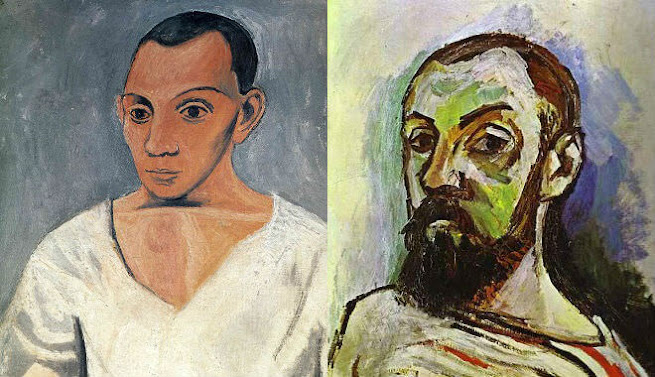#13 Having a Nemesis
This week’s newsletter issue is inspired by an essay I read by author and musician, Ted Gioia, who draws attention to the importance of having a nemesis for self-improvement.
A nemesis is someone who challenges you to keep up with them. The nemesis is a rival you’re jealous and inspired of at the same time. The nemesis consequentially motivates you to grow and achieve progress and along the way, the nemesis gets benefitted as well. Gioia writes,
One of the greatest rivalries in the art world — between Pablo Picasso and Henri Matisse led to many of the most celebrated artworks of modern times:“The first thing to understand is that your nemesis is not your enemy. Or, put differently, your nemesis is more than just an enemy. Rather, the nemesis is an adversary is who is like your dark twin. Even as you battle with the nemesis, you share a kind of DNA. The gaze at your nemesis is like looking into a mirror, but one of those fun house mirrors at the carnival, where everything is both recognizable and distorted.”
“Matisse and Picasso didn’t like each other’s paintings at first, but they seemed to sense at once the power each had to challenge and stimulate the other. For the rest of their lives each would keep a keen eye on the other’s new work, provoking each other to paint the same subjects, sometimes even with the same title. There are many ways to describe their relationship. It could be called a rivalry, a dialogue, a chess game – Matisse himself once compared it to a boxing match. But it also became the abiding friendship of two titans who, daring to paint the ugly, transformed our sense of beauty in art.”
Picasso commented, “No one has ever looked at Matisse’s painting more carefully than I, and no one has looked at mine more carefully than he.”
There are many other great examples of how having similar rivals can lead to great work: Beethoven and Daniel Steibelt, Bill Gates and Steve Jobs, Elon Musk and Jeff Bezos. Having a rivalry that forces you to be more creative challenges your ability every day.
Having a nemesis can be more powerful than having a mentor. The nemesis usually gives you negative feedback and this, in turn, gives you the motivation to prove them wrong and use the criticism to your own benefit.
Competent rivals will always have some valid points in the feedback they provide you. There is no winner or loser in healthy rivalries. It’s a partnership in which both constantly try to overpower each other but end up becoming successful together.

